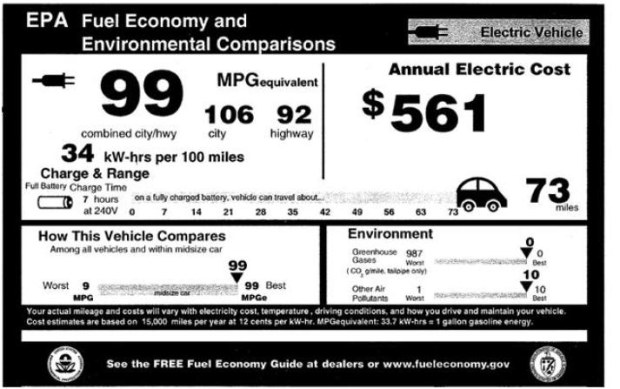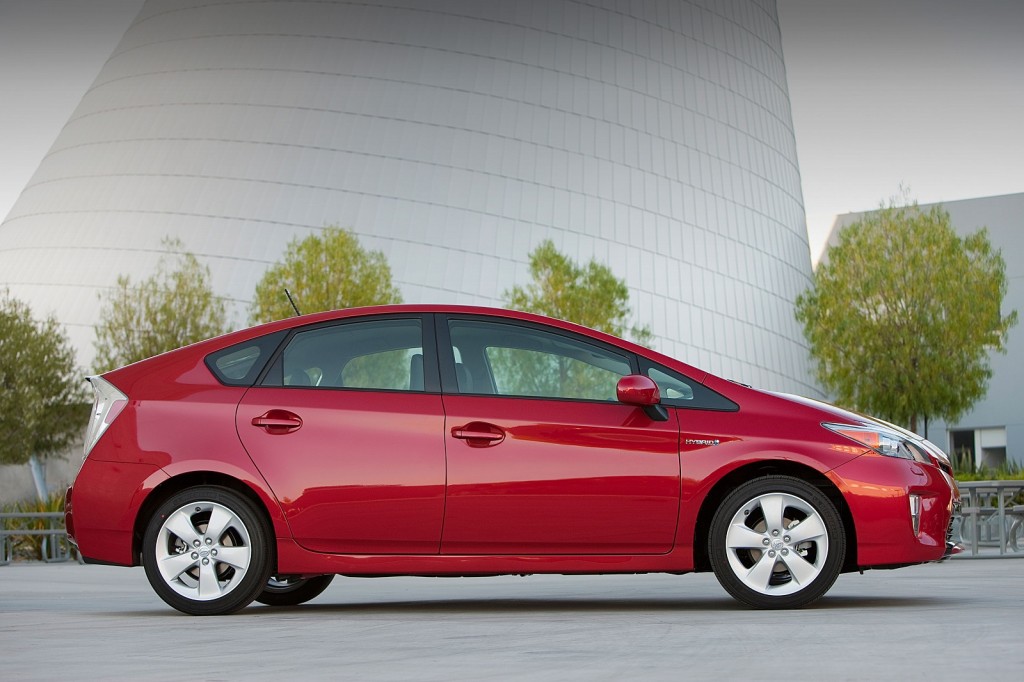By most accounts, the world is pretty much awash in oil these days.
Increases in North American shale-oil production have boosted supply to the point where there's now discussion of the U.S. becoming a net oil exporter sometime in the next decade.
Meanwhile, the vehicle fleet is slowly getting more efficient--and U.S. gasoline consumption peaked in 2006 and has fallen steadily since then.
DON'T MISS: Auto Industry Doing Fine In Meeting Gas-Mileage Goals, It Turns Out (Aug 2014)
All of this has added up to produce remarkably low recent gasoline prices.
In some parts of the U.S., drivers now pay less than $3 a gallon for regular (or roughly one-third the price that drivers in many parts of Europe and Asia pay).
All this adds up to an interesting new hazard for the corporate average fuel economy (CAFE) rules enacted for model years 2012 through 2025.
Each company's fleet average is supposed to rise to 54.5 mpg under the CAFE test regime, which translates to about 42 mpg combined on a new vehicle's window sticker.

2011 Nissan Leaf window sticker showing 99-MPG
Thus far, automakers have managed to exceed the mandated levels for 2012 through 2015, using a combination of more efficient engines, multi-speed transmissions, and other improvements to conventional gasoline vehicles.
Hybrid sales haven't risen much, diesels remain a small portion of the passenger-vehicle market, and while plug-in electric cars earn more sales every year, they will likely represent less than 1 percent of total U.S. sales this year.
Here's the risk: In 2017, there's a so-called "midterm review" of progress automakers have made toward complying with the CAFE standards.
ALSO SEE: U.S. Gasoline Usage Peaked In 2006, Will Plummet In Future (Dec 2010)
And automakers are seriously worried that if gasoline stays cheap, consumers will accelerate their current migration toward larger, less fuel-efficient vehicles.
Already, compact crossover utility vehicles now outsell mid-size sedans, long the mainstay segment of the new-car market.
As an article in trade journal Ward's Auto pointed out this week, even a very senior executive at Toyota worries that if gasoline stays at $3 a gallon, the company will fall short of its CAFE requirements.
And Toyota sells more hybrids in the U.S. than all other makers put together. It has the three highest-efficiency non-plug-in vehicles on the market: three different Prius hybrid models each rated at 50 mpg combined.

2015 Toyota Prius Liftback
Carmakers are expected to cry poverty at the midterm review, citing the huge expense of the new technologies. They will likely say, to a man, that it can't be done, it will ruin them, the resulting cars will be so expensive no one will buy them, and so on.
That's the sad history of every auto regulation enacted, starting with seat belts: massive, intransigent resistance by the industry, followed by virtually none of the dire predictions actually happening.
Still: If gas prices stay low for the next few years, makers may have a convincing case that consumers have made such a shift from smaller, more efficient vehicles to bigger, thirstier ones that their ability to meet the mandate is now seriously in doubt.
MORE: Why MPGs Matter: Iran Threatens Oil Supply Via Hormuz Strait (Dec 2011)
It's important to point out, of course, that many things can change between now and 2017.
Geopolitical instability, renewed war in the Middle East, or a dirty bomb in the Strait of Hormuz would suddenly disrupt the world's oil markets and almost surely boost oil prices quickly.

Gas Prices
But stable, low gas prices will only reinforce continued consumer resistance to the higher prices of more efficient hybrids, diesels, and plug-in electric vehicles.
Data appears to show that consumers change their car choices more in response to sudden changes in gas price than to the absolute level of those prices. (Look at U.S. drivers' recent adaptation to gasoline at $3.50 to $4.25 a gallon.)
As the Ward's piece ends, "Who ever thought the automotive industry would need protection from falling fuel prices?"
_______________________________________________













